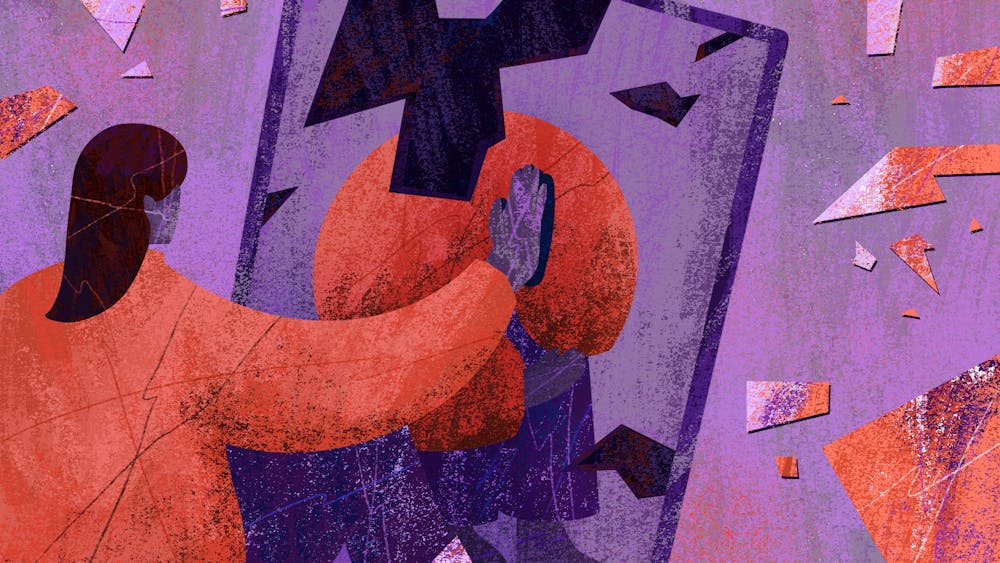I’ve always been overweight. I’ve spent most of my life trying to fit into normal pairs of jeans, squeezing through tiny doorways, and squashing myself to fit underneath the desks in classrooms.
In all honesty, while there’s a lot being done to embrace different styles of bodies, and there has been significant progress in recent years, there are some ideas that still act as a detriment to those that are heavier. From the actions of others, to the discrepancies in sizing for clothes and public spaces, society at large still has a ways to go to accept the increasing rate of overweight people.
I consider myself lucky; I’ve never been directly fat shamed, and most people are supportive of the journey I have undergone with my weight. But that doesn’t mean that I’m not subject to weird looks and glances at the gym because I sweat more, or if I decide to take my shirt off at the beach or the pool.
It also doesn’t exclude other people’s experiences. I’ve overheard too many conversations from family, friends, and strangers talking about someone’s weight. A few weeks ago, someone even commented on Sidechat that “fat people deserve no pity.”
The only reason I mention that specific statement is that it’s wrong for all the right reasons. “Fat people” don’t deserve pity because we’re not asking for it. Most people misunderstand the day-to-day life of heavier people, as well as what causes us to be the way we are. There’s always going to be benefits and drawbacks to body types, but other people’s opinions should not be on that list.
And yes, while an imbalance of food intake and exercise is going to contribute to weight gain, there are a myriad of other factors that contribute as well: Genetics, thyroid conditions, and even stress and poor sleep can all contribute to a person’s weight.
Importantly, these factors are simply out of a person’s control. It’s not always about not wanting to exercise or go on a diet; there are just too many factors controlling a person’s weight to simplify it in such ways.
So, sure, a lot of people don’t necessarily acknowledge the problems that lead to people gaining weight. But there’s also the matter of issues larger than just misinformation, in both society at large and here at Penn.
SEE MORE FROM ANDREW STRATTON:
A lot of these problems circulate around things like clothing and spaces being designed for people of a smaller, or more “normal,” size. Clothes are some of the biggest culprits; I have yet to find a size that actually works for me in every way, from the time I was younger to now. For instance, pants are a nightmare. They’re usually too big in the waist, and yet too tight in other areas.
I previously mentioned lecture hall seats, but college campuses and public spaces in general are littered with size inconveniences. A project called Fat on Campus showcases many of these issues including tiny bathroom stalls, seats with armrests, and tight spaces near desks and on public transportation.
In more ways than one, Penn tries to excuse itself from larger society. But it’s not exempt. In fact, Penn heightens and exemplifies more of these issues than the outside world. And a lot of it comes from not only the systems in place, but the people as well.
It isn’t just direct statements like the one I found on Sidechat. It can be anything from dirty looks to whispered comments; anything that can make someone feel like they’re less because they weigh more.
It’s hard enough to work up the courage and energy to help ourselves if we feel we need it. It’s even harder, though, when other people stand in the way of that help. Going to Pottruck already feels like a hard enough task. Imagine having to constantly deal with the worry that others will judge you for trying to be better.
Society’s leaps in weight acceptance have been great, but some places still have some catching up to do. Penn and its community members who do not accept those who are heavier showcase a form of discrimination that is oftentimes less spoken about.
I’m not saying it’s ideal to be overweight; there are a litany of health problems associated with being heavier, including high blood pressure and heart disease. And yes, Penn does have dieticians to help those who want to lose weight, and that’s certainly a plus.
But that doesn’t excuse people or systems to treat those who are overweight, like me, like they’re any less of a person.

ANDREW STRATTON is a College junior studying political science and journalistic writing from Nanticoke, Pa. His email is ars1027@sas.upenn.edu.









